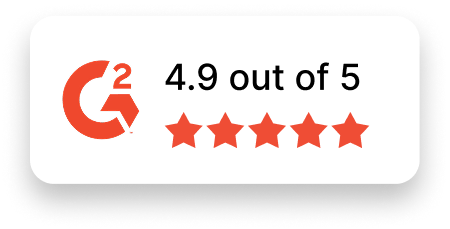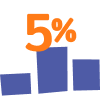Got questions about hiring with Second Talent? We’ve got the answer.
Hire the Top 5% of
Vetted Software Developers
Hire the top 5% of vetted software developers fast, with curated candidates delivered to you within 24 hours.
- Freelance contractors
- Full-time roles
- Global teams


Home / Developers / Software Developers
3,936 Top Software Developers Available to Hire

Linh N.
Full-stack Developer in Ho Chi Minh City, Vietnam
- Verified as Senior developer, Jun 2021
- JavaScript
- React
- Node.js
- MySQL
- AWS
- Data Science
- C++
- +5
Linh is a seasoned full-stack developer with expertise in scalable web applications. She specializes in React and Node.js, with strong database knowledge and experience deploying on AWS. She’s worked with global startups to build high-performance platforms from the ground up.

Mei F.
Frontend Developer in Hong Kong
- Verified as Senior developer, Jun 2021
- PHP
- Java
- Node.js
- C++
- AWS
- Data Science
- Node.js
- C++
- +5
Mei is a frontend developer with a flair for design and interactivity. She specializes in Vue.js and TypeScript, and works closely with designers to bring pixel-perfect interfaces to life.
She’s passionate about turning mockups into beautiful, functional products.

Dwi R.
DevOps Engineer in Jakarta, Indonesia
- Verified as Senior developer, Nov 2020
- PHP
- Java
- Node.js
- C++
- AWS
- C++
- +5
Dwi is a DevOps professional focused on automating infrastructure and optimizing deployments. He excels in container orchestration and cloud-native solutions using AWS and Terraform. He’s helped teams scale from MVP to enterprise infrastructure seamlessly.

Srey K.
Backend Developer in Kuala Lumpur, Malaysia
- Verified as Senior developer, Jun 2021
- PHP
- Java
- Node.js
- C++
- AWS
- Data Science
- Node.js
- +5
Srey is a backend engineer with solid expertise in Python and Django. She has built and maintained scalable systems for logistics and e-commerce clients, focusing on performance and maintainability. She enjoys optimizing backend logic to make systems run faster and smoother.

Bao L.
AI/ML Engineer in Shenzhen, China
- Verified as Senior developer, May 2021
- PHP
- Java
- Node.js
- C++
- AWS
- C++
- +7
Bao specializes in AI and machine learning, developing solutions in NLP and data classification. He is proficient in Python libraries like TensorFlow and works on enterprise AI pipelines.

Thida M.
QA Engineer in Yangon, Myanmar
- Verified as Senior developer, Jun 2021
- PHP
- Java
- Node.js
- C++
- AWS
- Data Science
- +3
Thida ensures quality across web and mobile platforms through automated and manual testing. She has experience with Selenium, API testing, and continuous integration workflows. She’s known for catching critical bugs early and improving release cycles.

Zhen Y.
Blockchain Developer in Hong Kong
- Verified as Senior developer, Jun 2021
- PHP
- Java
- Node.js
- C++
- AWS
- Data Science
- Node.js
- C++
- +5
Mac is a Senior full-stack developer with a client-centric approach. He excels in Python and React.js development, has solid experience in AI, DevOps, and cloud solutions. Additionally, Mac has a strong understanding of the Node.js platform, showcasing extensive experience in backend development…

Chalida P.
Data Engineer in Bangkok, Thailand
- Verified as Senior developer, Jun 2021
- PHP
- Java
- Node.js
- C++
- AWS
- Data Science
- Node.js
- C++
- +5
Chalida builds robust data infrastructure and pipelines for analytics and BI teams. She’s skilled in ETL frameworks and cloud data solutions like BigQuery and Airflow.

Wei Jian T.
Full-stack Developer in Singapore
- Verified as Senior developer, Jun 2021
- PHP
- Java
- Node.js
- C++
- AWS
- Data Science
- C++
- +7
Wei Jian is a full-stack developer with expertise in building scalable web applications and backend services. He is proficient in modern JavaScript frameworks like React and Node.js, with solid experience in database and cloud deployment. He has successfully delivered projects for fintech and e-commerce platforms across Southeast Asia.
Testimonials
"We were able to connect with incredibly talented professionals who understood our brand instantly. The tailored profiles saved us so much time."

Alexa Morgan
Senior Marketing Manager, North America
"The platform made it effortless to find highly qualified talent, perfectly matched to our project needs. The vetting process is top-notch."

Ethan Lee
Director of Operations, APAC
"Exceptional experience! We gained quick access to specialists who were not only skilled but also aligned with our brand's voice and vision."
Samantha Chen
VP of Strategy, North America
Discover Top Software Developers Today
Hiring Software Developers is Easy with Second Talent

Request
- Share your role, required skills, and budget.
- We’ll take it from there.

Interview
- Get a shortlist of vetted developers in 24 hours
- Review and interview.

Hire
- When ready, hire your developer.
- We’ll handle the rest.
Discover what we can do for you
Top Software Developers Are Just A Few Clicks Away
Second Talent offers pre-vetted software developers skilled in every programming language, framework, and technology. Look through our popular developer specializations below.
Find and Hire Software Developers by Role or Expertise
- Full-Stack Developer
- Front-End Developer
- Back-End Developer
- Mobile Developer
- Game Developer
- DevOps Engineer
- Cloud Engineer
- Kubernetes Engineer
- AWS Engineer
- Terraform Engineer
- AI Developer
- Machine Learning Engineer
- Data Scientist
- Data Analyst
- Data Engineer
- Blockchain Developer
- Smart Contract Developer
- NFT Developer
Find and Hire Software Developers by Skills
- React
- Vue.js
- Angular
- Next.js
- Nuxt.js
- Svelte
- Swift
- Java
- Kotlin
- Flutter
- React Native
- Node.js
- Express.js
- NestJS
- Django
- Ruby on Rails
- Laravel
- FastAPI
- ASP.NET Core
- AWS
- Azure
- Cloud Engineer
- Google Cloud Platform (GCP)
- Kubernetes
- Terraform
- Docker
- Ansible
- CI/CD
- Python
- TensorFlow
- PyTorch
- OpenAI
- LangChain
- NLP
- SQL
- MySQL
- PostgreSQL
- MongoDB
- Cassandra
- Redis
- Snowflake
- Apache Spark
- Hadoop
- GraphQL
- Airflow
- Data Scientist
- Data Analyst
- Data Engineer
- Solidity
- Rust
- Web3.js
- Cosmos SDK
- Ethereum
- Binance Smart Chain
- Zero-Knowledge Proofs (ZKP)
- Hyperledger
- Polkadot
- Avalanche
- DeFi
- NFT Development
- Chainlink
- Hardhat
- Truffle
- Ethical Hacking
- Penetration Testing
- Security Compliance
- SIEM
- SOC
- CyberArk
- Palo Alto
- CrowdStrike
- Salesforce
- Adobe Experience Manager
- SAP
- Oracle ERP
- Microsoft Dynamics 365
- Power BI
- Tableau
- Mulesoft
- Workday
Connect with Top Software Developers
Second Talent brings you skilled software developers from around Asia, ready to join your team anytime, anywhere.
Singapore
Malaysia
Vietnam
Hong Kong
Philippines
Thailand
Indonesia
China
How to Hire Top Software Developers
Finding and hiring the right software developer can feel overwhelming, especially when your project’s success depends on it. With nearly 28.7 million software developers worldwide and an increasingly competitive market, it’s essential to have a clear strategy to identify and secure the best talent. This guide will walk you through the process, offering practical steps, expert advice, and insights into hiring trends.
Why Hiring the Right Software Developers Matters
Software developers do more than just write code. They bring your digital ideas to life, build scalable systems, debug problems, and adapt to new technologies in a fast-evolving industry.
Hiring the wrong developer can lead to technical debt, project delays, and potentially higher costs. On the other hand, a skilled developer writes clean and efficient code, ensuring long-term project stability and growth. Their expertise directly impacts your product’s quality, usability, and scalability. According to industry estimates, 60% of software development costs go toward maintenance, which underscores the importance of hiring software developers who are capable of building maintainable systems.
Types of Software Developers You Can Hire
Modern software development is highly specialized, with various roles tailored to specific aspects of the development process. Each type of developer has unique skills, allowing them to address different project needs. Understanding these roles will help you hire the right person for the job. Here’s a breakdown of the most common types of developers you might require.
Front-End Developers
What They Do:
Front-end developers build the visual and interactive elements of websites and apps. Using tools like HTML, CSS, and JavaScript alongside frameworks such as React, Vue, or Angular, they create designs that are both attractive and functional. They ensure that digital interfaces work seamlessly across different devices and browsers.
What to Look For:
Choose a front-end developer with expertise in responsive design and performance optimization. Familiarity with modern frameworks is essential for creating dynamic user interfaces. For example, a good front-end developer will make your e-commerce website visually engaging and intuitive for customers on both desktop and mobile devices.
Back-End Developers
What They Do:
Back-end developers handle the server-side operations that power your app’s functionality. They work on data processing, APIs, databases, and server logic using languages like Python, Java, Ruby, or Node.js. Their responsibility is to ensure everything runs smoothly behind the scenes.
What to Look For:
Consider a back-end developer with experience in databases like PostgreSQL or MongoDB, API development, and scalable architecture. For instance, if you’re building a social media app, a back-end developer ensures data like posts and comments is handled efficiently and securely.
Full-Stack Developers
What They Do:
Full-stack developers are versatile professionals skilled in both front-end and back-end development. They can build user interfaces, develop server-side logic, and maintain cohesion across the entire project.
What to Look For:
Look for developers with a strong grasp of both front-end (e.g., HTML, CSS) and back-end technologies (e.g., Node.js, Django). Full-stack developers are ideal for startups and small projects, as they can tackle multiple roles, reducing the need for a larger team.
Mobile Developers
What They Do:
Mobile developers create smartphone and tablet apps. They specialize in platforms like iOS or Android, using programming languages such as Swift, Kotlin, or frameworks like React Native for cross-platform apps. Their focus is on building apps with a seamless and user-friendly mobile experience.
What to Look For:
Find a mobile developer with a solid understanding of platform-specific needs, such as app store guidelines and touch interface design. If you need an app for both iOS and Android, a developer experienced in cross-platform frameworks can save time and resources.
DevOps Engineers
What They Do:
DevOps engineers bridge the gap between software development and IT operations. They streamline workflows, automate processes, and maintain cloud infrastructure using tools like Docker, Kubernetes, and Jenkins.
What to Look For:
Hire a DevOps engineer with expertise in cloud platforms like AWS or Google Cloud and experience in continuous integration/continuous deployment (CI/CD) practices. They are invaluable for large-scale projects that demand rapid and reliable software updates.
Data Scientists
What They Do:
Data scientists analyze large datasets to uncover actionable insights. They use tools like Python, R, and machine learning models to process data and guide decision-making.
What to Look For:
When hiring, focus on candidates skilled in predictive modeling, data preprocessing, and visualization. For example, a data scientist can help businesses identify and improve customer behaviors through advanced analytics.
QA Engineers
What They Do:
Quality Assurance (QA) engineers ensure software reliability by testing for bugs, performance issues, and scalability. They automate testing processes and maintain high-quality standards throughout the development lifecycle.
What to Look For:
Select a QA engineer with experience in frameworks like Selenium or JUnit and proficiency in automated testing. Their contributions can prevent costly errors and ensure a smooth user experience.
Specialized Developers
What They Do:
Specialized developers focus on cutting-edge areas like AI, blockchain, game development, or embedded systems. They possess deep expertise in their respective domains to build complex, innovative solutions.
What to Look For:
Ensure specialized developers have hands-on experience relevant to your project. For instance, if you’re working on AI, seek someone familiar with frameworks like TensorFlow. For blockchain, knowledge of smart contracts and security protocols is crucial.
How to Hire a Software Developer in 7 Steps
Recruiting software developers comes down to implementing a structured hiring process. Here’s how you can do it effectively in seven steps:
Step 1: Define Your Project Scope
Before starting your search, outline your goals, technical requirements, budget, timeline, and expectations. Clearly defining the scope ensures you know what skills and experience to look for in candidates.
Step 2: Choose the Right Hiring Model
Decide whether to hire an in-house developer or a freelance software professional. Your choice should depend on your project size, budget, and timeline.
- In-house developers provide long-term, full-time expertise.
- Freelancers offer flexibility for short-term or specialized tasks.
Step 3: Write an Attractive Job Description
A clear, detailed job post is crucial for attracting qualified software developers. Mention the following in your job description:
- The role’s responsibilities
- Required technical skills (e.g., languages, frameworks, tools)
- Preferred experience levels
- Information about your company’s mission and values
Step 4: Assess Technical Skills
Review resumes, portfolios, and GitHub profiles to evaluate a software developer’s technical experience. Use coding tests or challenges to assess their practical problem-solving ability, which ensures they can handle your specific project needs.
Step 5: Conduct Comprehensive Interviews
Schedule both technical interviews and behavioral assessments. Technical interviews should focus on problem-solving, familiarity with frameworks, and coding skills. Behavioral interviews assess communication, teamwork, and cultural fit.
Step 6: Make a Competitive Offer
Discuss salary expectations and make an offer that reflects market rates and the candidate’s skills. For remote hires, consider competitive rates from global talent markets to save costs while maintaining quality.
Step 7: Onboard Your New Team Member
Provide tools, access to documentation, and mentors to set your new hire up for success. Regular check-ins will help ensure a smooth transition into your team.
Essential Skills to Look for in a Software Developer
Finding the right developer means looking for a balance between technical expertise and essential soft skills. The following are the key qualities to focus on when evaluating candidates to ensure they can meet your project’s demands.
Technical Skills
- Programming Languages: For web development, prioritize knowledge of JavaScript, Python, Ruby, and frameworks like React, Angular, or Node.js. For mobile apps, look for proficiency in Swift (iOS), Kotlin (Android), or cross-platform solutions like React Native.
- Cloud Platforms: Familiarity with services like AWS, Google Cloud, or Azure is valuable as cloud infrastructure becomes increasingly prevalent.
- DevOps Tools: Experience with tools like Docker, Kubernetes, and Jenkins is a big advantage, particularly for projects requiring workflow automation and scalable systems.
- Database Management: Depending on your project, ensure they are skilled in relational databases like MySQL or PostgreSQL and NoSQL options such as MongoDB or Cassandra.
- Version Control: Proficiency with Git and platforms like GitHub or GitLab is essential for collaborative, efficient coding and project management.
Soft Skills
- Teamwork and Communication: Developers should collaborate effectively with teammates across departments and explain technical ideas in clear, understandable terms.
- Adaptability: With constant technological advances, successful developers are those who stay curious and willing to learn new tools and practices.
- Problem-Solving: Strong critical-thinking skills allow developers to break down challenges, pinpoint root issues, and craft innovative solutions.
- Cultural Fit: A developer who resonates with your company values and works well with your team will thrive and contribute positively to your organization’s goals.
How to Write an Effective Job Description
Crafting a clear and engaging job description is essential to attract the right talent. A well-written post not only outlines the role but also helps candidates determine their fit with your company. Here’s how to create an impactful software developer job listing.
Key Components to Include
- Job Title: Use a clear and descriptive title like “Front-End Developer” or “Full-Stack Developer.”
- Company Overview: Briefly introduce your company, mission, culture, and values to give candidates insight into the work environment.
- Job Summary: Highlight key responsibilities, technologies used, and the role’s impact on the company’s goals.
- Responsibilities: Provide a list of core duties, such as coding, team collaboration, and reviewing code quality.
- Skills and Qualifications: Specify technical proficiencies required, such as programming languages (e.g., Java, Python), frameworks (e.g., React, Angular), and tools (e.g., Git, Docker).
- Preferred Skills: Mention additional skills like experience with cloud platforms, mobile development, or agile methodologies, though not mandatory.
- Education: State minimum educational requirements, like a degree in computer science or software engineering.
- Soft Skills: Include qualities such as teamwork, problem-solving, communication, and attention to detail.
- Compensation and Benefits: Clearly outline salary, bonuses, perks, and other benefits.
- Work Environment: Describe the setup (remote, in-office, or hybrid) and provide insight into your company culture.
- Call to Action: Conclude with instructions on how to apply.
Example Job Post
Full-Stack Software Developer
[Company Name] is a fast-growing tech company dedicated to revolutionizing healthcare through innovative software. We’re seeking a talented Full-Stack Developer to join our team and help build cutting-edge solutions.
About Us
We strive to enhance patient care and streamline healthcare operations with our industry-leading software. At [Company Name], we cultivate a culture of learning, creativity, and teamwork.
Job Summary
As a Full-Stack Developer, you’ll design and maintain high-quality web applications using modern tools and best practices. Collaborating with cross-functional teams, you’ll transform business needs into scalable solutions.
Responsibilities
- Build responsive web applications with HTML, CSS, and JavaScript frameworks like React and Node.js.
- Integrate APIs and ensure smooth data flow between systems.
- Design secure and efficient database solutions using MongoDB or PostgreSQL.
- Participate in code reviews and follow development best practices.
- Stay updated on emerging web development trends and tools.
Required Skills
- Degree in computer science, software engineering, or a related field.
- Expertise in JavaScript, HTML, CSS, and front-end frameworks like React or Angular.
- Knowledge of back-end tools such as Node.js and RESTful APIs.
- Experience with databases like MongoDB or MySQL.
- Familiarity with Git and team development tools.
Preferred Skills
- Experience with cloud platforms (AWS, Azure).
- Knowledge of agile methodologies and DevOps practices.
- Familiarity with mobile development frameworks like React Native or Flutter.
What We Offer
- Competitive salary and performance-based bonuses.
- Comprehensive health, dental, and vision insurance.
- Employer-matched 401(k) plan.
- Professional growth opportunities and flexible work options.
If you’re ready to make an impact as a Full-Stack Developer in our fintech industry, we’d love to hear from you. Send your resume and cover letter to [email protected].
The Most Important Software Developer Interview Questions
When interviewing software developers, asking targeted questions to evaluate their technical expertise and problem-solving abilities is crucial. Here’s a concise list of questions categorized by specialization to help you assess candidates effectively.
Front-End Development
- How do you optimize a website’s performance?
Look for knowledge of techniques like lazy loading, code splitting, and tools like Lighthouse or Chrome DevTools. Strong candidates focus on responsive, efficient applications that perform across devices. - How do you ensure cross-browser compatibility?
Top candidates discuss using CSS resets, feature detection, and testing tools like BrowserStack. Clean, standards-compliant coding and progressive enhancement reflect a proactive approach.
Back-End Development
- What are the differences between relational and non-relational databases, and when would you use each?
A good answer highlights relational databases for structured data (e.g., MySQL) and non-relational databases for unstructured, scalable solutions (e.g., MongoDB). - How do you handle concurrency in multi-threaded environments?
Candidates should mention strategies like mutexes, semaphores, or transactional memory to mitigate race conditions and ensure thread safety.
Mobile Development
- How do you optimize mobile apps to conserve battery life?
Strong responses include reducing background processes, optimizing network requests, and using tools like Battery Historian to monitor usage. - How do you handle different screen sizes and resolutions?
Top developers describe using techniques like Auto Layout (iOS), scalable units (Android), or flexible components in cross-platform frameworks.
Full-Stack Development
- How would you design and build a full end-to-end web application?
The ideal candidate demonstrates knowledge of database setup, API design, front-end interfaces, and server-side logic using tools like Node.js or Django. - How do you handle state management in a full-stack application?
Look for familiarity with tools like Redux and solutions like JWT for authentication, alongside strategies for session management and data consistency.
Version Control
- How do you resolve merge conflicts in Git?
A skilled developer explains using Git commands like git merge and git rebase, emphasizes communication with teammates, and highlights maintaining clear commit histories. - What practices do you follow to keep a clean Git commit history?
Seek candidates focused on meaningful commit messages, logical branching strategies, and squashing commits when needed.
APIs
- How do you design a RESTful API?
A strong answer covers clear resource-based endpoints, proper use of HTTP methods, and implementation of best practices like versioning and security with OAuth. - How do you secure your APIs?
Candidates should discuss using HTTPS, input validation, authentication protocols (e.g., JWT), and protection against common vulnerabilities like SQL injection.
Debugging
- What’s your approach to debugging a challenging issue?
Ideal candidates explain systematically reproducing the bug, analyzing logs, and using debugging tools like breakpoints to isolate the problem. - How do you diagnose and address performance issues?
Look for strategies like profiling, optimizing algorithms, and reducing database calls while maintaining functionality and user experience.
Cloud Platforms
- How do you deploy and scale applications in the cloud?
Strong developers mention using services like AWS EC2, auto-scaling, and infrastructure as code with tools like Terraform. - How do you ensure security and compliance in the cloud?
Candidates should discuss setting IAM roles, encryption practices, security auditing, and compliance with standards like GDPR or HIPAA.
CI/CD
- How do you implement CI/CD in your workflow?
Seek candidates who describe building pipelines with tools like Jenkins, automating tests, and deploying regularly for reliable code delivery. - What do you do when a build or deployment fails?
Ideal candidates explain isolating errors, rolling back to stable versions, and using monitoring and logging to prevent recurrence.
Agile Development
- What’s your role in Agile sprint planning?
Top candidates highlight breaking down tasks into stories, attending stand-ups, and collaborating with teams to meet objectives iteratively. - How do you handle shifting priorities in Agile projects?
Strong answers show adaptability by reassessing priorities, reallocating resources, and maintaining communication with stakeholders.
Security Best Practices
- How do you ensure your code is secure?
Look for methods like input validation, secure authentication (e.g., MFA), and protection against vulnerabilities like XSS or SQL injection. - How do you protect sensitive data in transit and at rest?
Candidates should mention HTTPS/SSL for data in transit, AES encryption for data at rest, and secure key management practices.
The Cost of Hiring Software Developers
Factors Impacting Cost Differences in Hiring Developers
Understanding the factors influencing developer costs is crucial when comparing talent pools. Below, we break down the key elements driving cost differences between the US and Southeast Asia.
1. Experience Level
Experience heavily dictates developer salaries, with notable variations between the US and Southeast Asia.
Junior Developers (0–2 Years)
- US: Higher salaries due to elevated living costs and a competitive market.
- Southeast Asia: Significantly lower rates, as lower living costs drive salary expectations down.
Mid-Level Developers (3–5 Years)
- US: Commands substantial salaries due to their ability to handle tasks independently.
- Southeast Asia: Often costs less than US-based junior developers, providing excellent value.
Senior Developers (5+ Years)
- US: Highly paid due to their advanced expertise and leadership roles.
- Southeast Asia: While affordable compared to the US, Southeast Asian senior developers still offer strong technical skills at a fraction of the cost.
2. Location-Based Cost Differences
High-Cost Regions (US)
- Cities like San Francisco, New York, and Seattle have steep salary expectations tied to the cost of living and fierce competition.
- Even remote US-based developers often have higher rates compared to international talent.
Lower-Cost Regions (Southeast Asia)
- Countries like Vietnam, the Philippines, and Indonesia present lower development costs while maintaining high-quality technical standards.
- Offshore teams or hybrid models are popular strategies for companies seeking cost-effective alternatives.
3. Project Complexity and Required Skills
The nature of the project and the skills needed significantly impact developer rates.
General Development Skills
- Skills in web, mobile app, and general backend/frontend development are cost-effective in both regions.
- However, US developers typically charge 2–3x more than their Southeast Asian counterparts.
Specialized Skills
- Developers in AI, ML, blockchain, cybersecurity, or big data command premium rates globally.
- While Southeast Asia offers lower costs even in these niches, the gap narrows due to specialized expertise.
4. Remote Work and Cost Optimization
Remote hiring and hybrid models are reshaping recruitment strategies for US companies.
- Offshore developers allow businesses to cut costs significantly without sacrificing quality.
- A hybrid approach, retaining a core in-house US team while outsourcing to Southeast Asia, balances high expertise with cost savings.
Developer Cost Snapshot
Below is a comparison of average hourly and annual rates between US-based and Southeast Asian developers.
Developer Level | US Hourly Rate | US Yearly Salary | SEA Hourly Rate | SEA Yearly Salary |
Junior | $55–$80 | $114,400–$166,400 | $20–$25 | $41,600–$52,000 |
Intermediate | $65–$90 | $135,200–$187,200 | $25–$30 | $52,000–$62,400 |
Senior | $78–$125 | $162,240–$260,000 | $24–$33 | $49,920–$68,640 |
Common Mistakes to Avoid When Hiring Software Developers
Hiring the right software developer is crucial, but certain missteps can lead to mismatches, delays, and wasted resources. Here are key pitfalls to watch out for when vetting and hiring developers.
1. Unclear or Misleading Job Descriptions
Vague or poorly written job descriptions attract unsuitable candidates and deter qualified ones. Clearly define the role, responsibilities, required skills, and technologies to ensure the right talent applies.
2. Overemphasizing Technical Skills
While technical expertise is essential, overlooking soft skills can be a mistake. Traits like communication, teamwork, and problem-solving are just as critical for ensuring a developer’s success in collaborative environments.
3. Ineffective Onboarding
Hiring a great developer is only half the battle. Poor onboarding can limit their potential. Set them up for success by providing access to tools, introducing company culture, and clarifying goals during the onboarding process.
4. Rushing the Hiring Process
Hastily filling a position often leads to costly hiring mistakes. Take the time to thoroughly evaluate candidates through interviews, technical tests, and cultural fit assessments to find the right match for your team.
5. Skipping Technical Assessments
Interviews alone can’t measure practical coding abilities. Implement technical assessments to evaluate candidates’ problem-solving skills and their ability to write clean, functional code relevant to your project.
Changing Trends in Software Developer Hiring
The hiring landscape for software developers is evolving rapidly due to shifts in work environments, technological advancements, and increased security demands. Here are the key trends shaping how companies attract and retain top development talent today.
1. Remote and Hybrid Work
The rise of remote and hybrid work, accelerated by the COVID-19 pandemic, has transformed software development roles. Companies now leverage the flexibility of remote setups to access a global talent pool and reduce overhead costs.
- Benefits for Developers: Remote work offers flexibility, better work-life balance, and location independence, making it a top expectation among candidates.
- Challenges for Employers: Businesses must adapt by fostering clear communication, implementing collaboration tools, and promoting a culture of trust. Regular virtual meetings, pair programming, and team-building activities ensure alignment and cohesion.
2. AI and Automation in Development
AI tools like GitHub Copilot are revolutionizing development by automating repetitive tasks and providing intelligent code suggestions. This technology allows developers to focus on refining and securing AI-generated code rather than building everything from scratch.
- Impact on Roles: While AI boosts productivity, it may reduce demand for entry-level developers handling routine tasks, increasing the need for skilled professionals to oversee complex systems.
- New Workflows: Developers must integrate AI into their processes, ensuring the quality and reliability of the code while addressing biases in AI outputs.
3. Growing Demand for Security Skills
As cyber threats rise, businesses are prioritizing developers with expertise in security to safeguard their systems and data.
- Key Responsibilities: Developers must identify vulnerabilities, implement secure code practices, and defend against threats like XSS and SQL injection. They also need to secure cloud environments and manage microservices communication.
- Strategic Focus: Hiring developers with strong security skills and providing ongoing training equips companies to combat evolving threats and build more secure applications.
Final Thoughts for Hiring the Right Developer
Hiring top talent doesn’t happen by chance. Define your needs clearly, assess skills thoroughly, and create an environment where developers can thrive. The right software developer will bring your vision to life, ensuring your project runs smoothly and creates long-term success.
If you’re ready to find the perfect software developer for your team, start with a clear plan, and don’t hesitate to invest in quality talent.
Contents
Why Hire Software Developers with Second Talent?
Hire smarter with Second Talent. Connect with top-tier Southeast Asian developers, matched in 24 hours, at a fraction of the cost.

Top 5% Developers
Work with elite, pre-vetted developers who bring deep expertise and strong English communication.

Hire in 24 Hours
Skip the resume overload. Get matched with the right developers—fast.

Affordable Talent
Access 50,000+ developers across Southeast Asia and save up to 58% compared to traditional hiring.
Why Clients Choose Second Talent
See how businesses succeed with our top-tier developers and trusted hiring experience.
"Access to highly-skilled developers has always been a challenge, but this platform consistently delivers talent that fits both technically and culturally."

"We were impressed by how quickly we could onboard engineers who were not just technically capable but also aligned with our agile workflows."

"The speed and accuracy of finding vetted talent saved us time and directly improved our project delivery timelines."

"We needed remote talent who could adapt fast and drive results. Second Talent gave us exactly that, without the usual hiring friction."

"Hiring for specialized operations roles used to be painful, but now it feels effortless. The vetted talent has been consistently high-quality."

FAQ
Why Is Second Talent the Best Choice for Hiring Full-Time and Freelance Software Developers?
Second Talent connects businesses with the top 5% of vetted software developers, ensuring high-quality talent for both permanent and freelance roles. Our fast hiring process enables you to onboard developers within 24 hours, saving you time and effort. We eliminate upfront fees, offer unlimited replacements if a hire isn’t the right fit, and manage payroll, compliance, and contracts, making the entire process seamless.
What Types of Software Developers Can I Hire Through Second Talent?
Second Talent provides a wide range of software developers with expertise in various industries like technology, fintech, e-commerce, gaming, SaaS, and blockchain. Whether you need developers skilled in front-end, back-end, full-stack, mobile development, or specialized technologies, we match you with professionals tailored to your specific requirements.
How Does Second Talent Vet Software Developers for Technical Skills?
Our rigorous multi-step vetting process ensures only top-tier professionals are shortlisted. Developers undergo technical assessments to evaluate their coding expertise and problem-solving abilities.
How Quickly Can I Find and Onboard a Software Developer Through Second Talent?
With Second Talent, you can onboard a pre-vetted software developer in as little as 24 hours. Our efficient hiring process eliminates the time-consuming steps of sourcing and screening candidates, allowing you to focus on your business priorities.
What Steps Does Second Talent Take to Ensure a Quality Candidate Match?
We take a tailored approach to every hire. Our team carefully assesses your company’s tech stack, culture, and hiring goals to match you with the most suitable developers. Instead of sending generic resumes, we provide a curated list of handpicked candidates who meet your specific needs, ensuring a seamless fit for your team.
Can I Interview Candidates Before Making a Hiring Decision?
Yes, absolutely. Second Talent encourages clients to interview shortlisted candidates to ensure they align with your technical and cultural expectations. We provide full support throughout the process, offering guidance to help you make informed decisions.
What Happens If the Software Developer I Hire Isn’t the Right Fit?
If a developer does not meet your expectations, Second Talent offers unlimited replacements at no additional cost. Our goal is to ensure you have the right talent to support your business needs, with minimal disruption to your operations.
For more frequently asked questions on hiring PHP developers, check out our FAQs page.